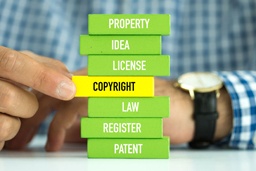Are you in the business of creating, acquiring, owning, publishing, licensing or financing original works entitled to copyright protection, such as books, movies, sound recordings, musical compositions, audio/visual works, software, photos, artwork, or articles? If so, the U.S. Supreme Court’s recent decision in Fourth Estate Public Benefit Corp. v. Wall-Street.com should be of interest.
The use of a copyrighted work without the owner’s permission is unlawful under the Copyright Act and can result in a copyright infringement lawsuit. Such a case may subject the infringing party to significant damages and the payment of the copyright owner’s attorneys’ fees. But this begs a procedural question that has existed for some time without consensus: when can a copyright infringement lawsuit properly be filed? The Supreme Court in Fourth Estate provided a clear-cut answer – a copyright owner cannot file a copyright infringement lawsuit until the U.S. Copyright Office has registered the work subject to dispute.
For copyright owners, this decision, written by Justice Ruth Bader Ginsburg, is not welcome news given that it takes the Copyright Office seven months, on average, to process applications. Justice Ginsburg acknowledged this delay, but dismissed its impact by assuring plaintiffs that despite the bureaucratic lag, they will have plenty of time to sue (read: the ruling does not present statute of limitation issues) and recoveries may contemplate infringement that began even before the copyright owner’s submission of an application. This should come as some comfort to victims of copyright infringement, as may the option to expedite the registration process (though such “special handling,” which typically results in action by the Copyright Office within days, is costly and may now take longer as a result of the flood of expedited submissions expected in the wake of Fourth Estate).
The Takeaway
To avoid having to wait months to initiate litigation under the Copyright Act (or pay a substantial fee for expedited registration), copyright owners are encouraged to register their works sooner rather than later. The attorneys at Michelman & Robinson, LLP are here to help in that regard. If you have IP that has yet to be legally protected, please contact Jeremy Richardson at (212) 730-7700 or [email protected], and should you have questions about how the Court’s decision affects your rights as an owner, acquiror, lender or financing source for creative works, please contact Michael Poster at (212) 730-7700 or [email protected].
This blog post is not offered as, and should not be relied on as, legal advice. You should consult an attorney for advice in specific situations.

